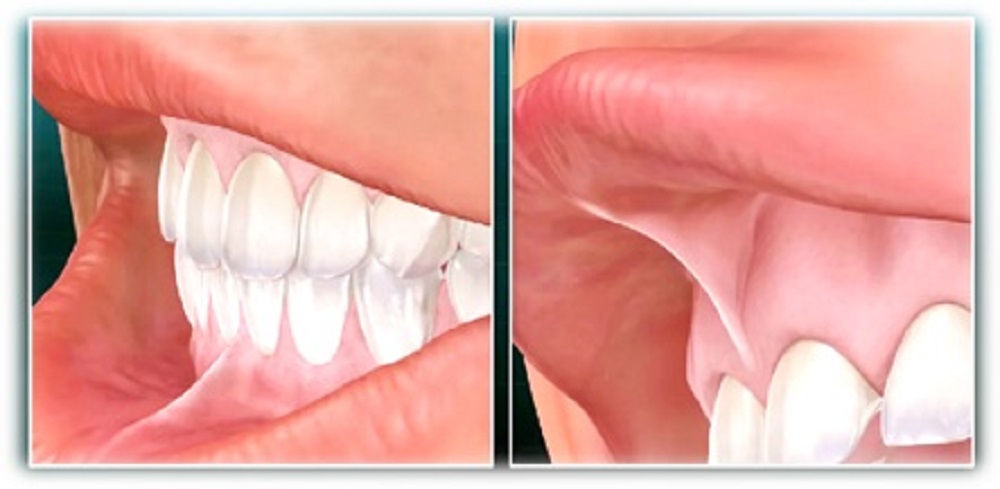How concerned should you be about your young child’s tongue tie or lip tie? Is tongue tie treatment near you important or necessary? Should you look for lip tie treatment near you if your child has a lip tie, or if breastfeeding is complicated for you and your child.
What is a tongue tie?
In the womb, everyone develops a lingual frenum, a piece of tissue that connects an infant’s tongue to the base of her mouth. You can find it in your own mouth even as an adult by looking in the mirror and lifting your tongue. That lingual frenum guides the growth of the structures in the fetus’ mouth, and usually recedes and thins before the child is born. It doesn’t ever disappear, but typically weakens and shrinks.
In some cases, the lingual frenum does not recede, thin, weaken and shrink prior to birth, or at least not completely. In some cases, the lingual frenum remains so thick and strong as to limit the mobility of the infant’s tongue. That condition is referred to as tongue tie, also called ankyloglossia.
Some tongue ties are harder to identify than others depending on where it appears. A posterior tongue tie is not as easily seen as a more typical tongue tie and should be searched for carefully if symptoms of a tongue tie are present despite the apparent lack of a tongue tie.
What is a lip tie?
The frenulum that connects the tongue to the base of a fetus’ tooth as a lingual frenum also exists as a labial frenum. The labial frenum is a piece of tissue present in a fetus’ mouth that lies between the upper gums and the inside of her upper lip. If that labial frenum does not recede, thin, weaken and shrink — as it typically does prior to birth — that strong or rigid labial frenum can prevent the child from curling or moving her upper lip normally. That inability to move her lip normally is referred to as a lip tie.
Are tongue ties and lip ties serious?
Tongue ties and lip ties can contribute to poor weight gain by interfering with their breast feeding because the reduced range of lip and tongue motion can prevent the forming of a good seal between the mouth and nipple. If a proper seal is not formed or maintained as the child tries to nurse, she may swallow air instead of breast milk. That can cause the infant to experience gas or colic, and to spit up.
A child struggling during breastfeeding due to tongue tie or lip tie may produce a clicking sound that may be present even while nursing from a bottle. For the nursing mother, a child struggling to breastfeed due to a tongue tie or a lip tie may cause pain, thrush, mastitis, nipple blanching, nipple bleeding, or nipple cracking. The need for constant feeding because the child is nursing so poorly leads to exhaustion for the mother.
As the child ages, the implications of tongue and lip ties can become more pervasive. While many children with a tongue tie learn to speak completely naturally, many other children struggle to produce several sounds due to the limited range of motion in her mouth. They may also speak with a bit of a lisp.
The atypical shape of an infant’s mouth with a lip tie or tongue tie can also interfere with ideal oral hygiene, interfere with playing musical instruments, and even contribute to breathing and airway issues that are associated with sleep apnea.
There are several quick, simple, and painless types of lip tie treatment in Apollo Beach. Parents concerned about their child’s weight gain, health and development, and with the mother’s experience of breastfeeding should seek advice about their child’s health and the importance of treatment. For more information about lip tie and tongue tie treatment in Apollo Beach contact a pediatrician near you.
